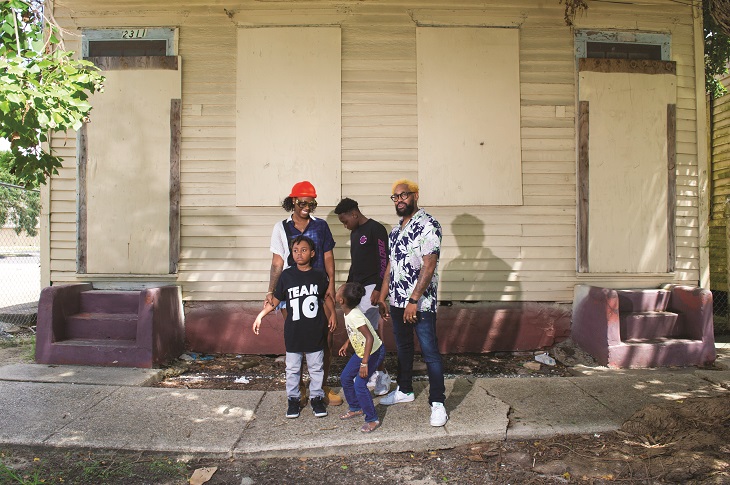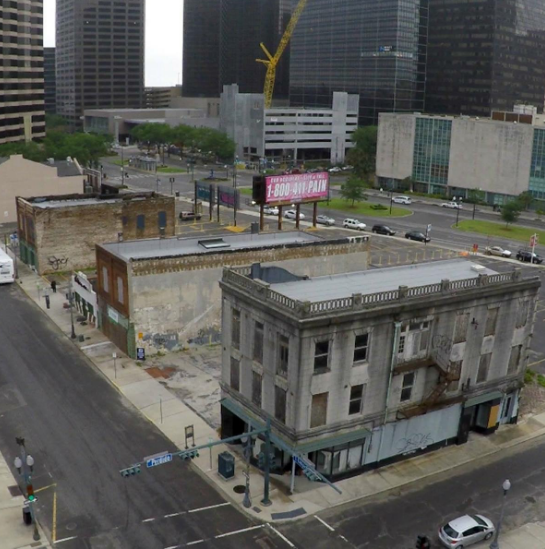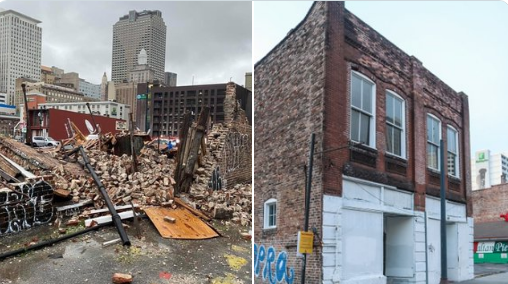New Orleans has long been known as the “City That Care Forgot,” but I think it might be renamed “The City That Doesn’t Care” when it comes to its musical history.
Having published several features over years regarding the deterioration of New Orleans musically-significant properties, I was dismayed and disappointed to read in today’s newspaper that Buddy Bolden’s home in Central City may be “demolished by neglect” by the city—because it’s literally falling down.
We’ve already lost so many relics of the city’s musical history that one wonders if New Orleans is really a city that cares about her international reputation as a music mecca, especially as related to jazz. New Orleans—despite its claim that music is a local treasure—is woefully negligent in taking care of her historical treasures. The French Quarter has a bulldog (the Vieux Carre Commission) to monitor and maintain its historic nature. But outside of that, there’s the Historic District Landmarks Commission, which designates and handles nominations for “historic properties.” THe HDLC apparently is in charge of reviewing buildings for their historical significance, but doesn’t have any real “teeth” to maintain or demand maintenance of these properties.
I don’t think it’s entirely necessary for me to go into particulars on this subject, as OffBeat has many, many times published stories about the importance of properties throughout New Orleans in the history and tradition of jazz.

PJ Morton, his wife Kortni and their three children standing outside of Buddy Bolden’s former home on First Street in Central City. Photo by Elsa Hahne
It’s particularly disturbing to discover that the owners of the property, the Morton family have not taken care of the house. The Morton family are behind the Greater St. Stephen’s Church, with musician son PJ Morton—of Maroon 5 fame—supposedly taking the lead on renovating and preserving the Buddy Bolden House, as it’s called, at 2309-11 First Street. The property was purchased not long after Hurricane Katrina—the Mortons say they were unaware of its historical significance. But the building has been neglected by its owners for many years.
OffBeat had interviewed PJ Morton in 2019, and the subject of the Bolden house was discussed. Our writer discovered that Morton was not really familiar with the significance of Bolden (what, teach New Orleans history in school?), but when he was apprised of his importance to New Orleans music, he started a non-profit to renovate the house and created an event to help to raise money for its renovation and preservation.
But apparently nothing has been done in four years to preserve and restore the property, so the city has finally seized the property and wants it demolished.
There are other properties in the city relevant to the roots of jazz, several of which are located on South Rampart Street, including the Eagle Saloon (which had elicited some renovation support back in 2016), the Iroquois Theater (413 S. Rampart), and the Karnofsky Tailor shop (437 S. Rampart).
Two years ago, the Iroquois Theater and the Karnofsky property were sold to a local developer, who stated in a NOLA.com feature “We look forward to placing these buildings back into commerce in a way that pays tribute to their rich history and importance to our community and country. The public can expect work to begin restoring the historic facades of both buildings and a plaque installed to honor what took place inside.”
Nothing happened with these two properties, except that the Karnofsky property was destroyed by Hurricane Ida.
The Buddy Bolden House is crumbling away and may soon be demolished.
Once they’re gone, they’re gone.
It’s shameful that New Orleans doesn’t seem to give a damn about some of its most precious, historically significant properties that are an integral piece of the story of jazz.
Unfortunately, I don’t see a good end in sight for preserving our musical heritage properties. There have been numerous voices in the community (pretty much all media, including OffBeat, the New Orleans Advocate, Gambit, the Lens, NPR, Preservation Resource Center, activist John McCusker and more) who have covered this topic and pointed out the importance of preserving these properties, but no one seems to listen. Or no one will put their money where their mouth is and actually step forward to preserve these historic buildings. It’s absolutely pitiful that these buildings are just a step away from being gone forever.
We sort of thought PJ Morton would be the person to save the Bolden House, one it was brought to his attention. Didn’t happen. Who else will take this on?
Why doesn’t the HDLC take a stronger stance on preserving this historic properties? Set up a system of fines (the more expensive, the better) to insure that these historic gems are preserved and maintained.
Why can’t the city establish a commission to take on (and raise money for) the preservation of these properties? Could the New Orleans Jazz Museum contribute to this in some way? What about the New Orleans Cultural Economy fund?
Why doesn’t New Orleans care about its musical history? I have an idea: the New Orleans economy floats on a sea of alcohol..and not just by visitors. There’s pretty much nothing that happens in New Orleans that doesn’t depend on alcohol. Alcoholic beverage manufacturers and distributors probably make more money per capita in New Orleans than anywhere else. Would it be so out of the ordinary to ask the alcohol industry to contribute regularly to this city that surely makes them very profitable? Could they sponsor an effort to make sure that the historic musical culture of New Orleans is shored up and maintained?






